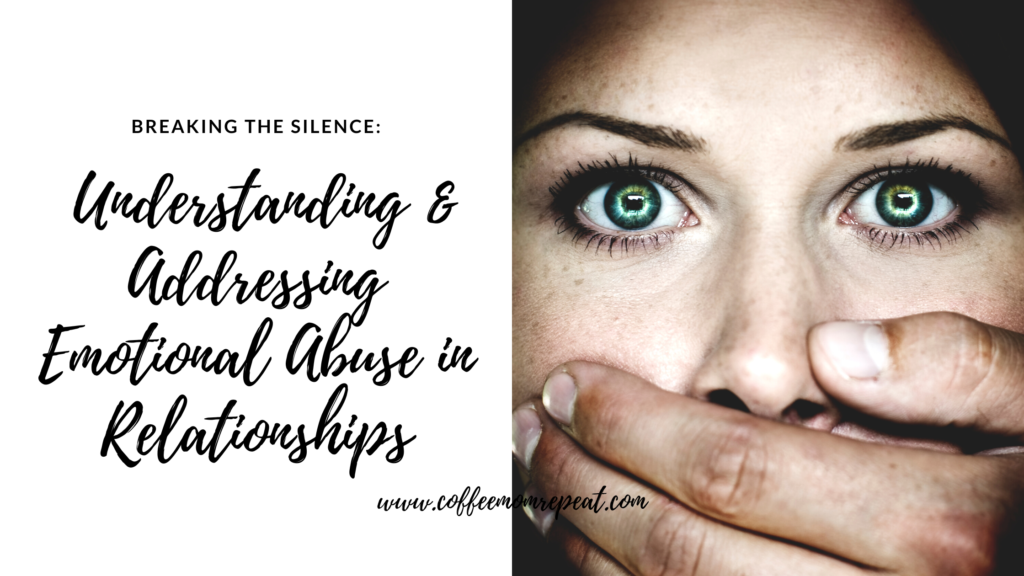Emotional abuse in a relationship is a serious and often overlooked form of abuse that can have devastating effects on a person’s mental and emotional well-being. Unlike physical abuse, which leaves visible scars, emotional abuse is subtle and insidious, making it difficult to recognize and address. In this blog post, we’ll explore how to identify emotional abuse, as well as its short-term and long-term effects on individuals.
Identifying emotional abuse can be challenging, as it often takes the form of manipulation, intimidation, and control rather than physical violence. Common signs of emotional abuse include constant criticism, belittling, and humiliation, as well as threats, isolation, and gaslighting. Gaslighting is a particularly insidious form of emotional abuse in which the abuser manipulates the victim into doubting their own sanity and perception of reality. Gaslighting is a form of emotional abuse in which the abuser manipulates the victim into doubting their own thoughts, feelings, and perceptions. Recognizing gaslighting can be challenging, as it often involves subtle and gradual manipulation. Here are some signs to look out for:
- Denying or Dismissing Your Feelings: The abuser may tell you that your feelings are invalid, irrational, or wrong, and that you are overreacting.
- Twisting the Truth: The abuser may distort facts or events to make you question your memory or perception of reality.
- Blaming You for Their Behavior: They may shift the blame onto you for their actions or behavior, making you feel responsible for their mistreatment.
- Withholding Information: The abuser may withhold information or selectively share information to control the narrative and manipulate your perception of events.
- Minimizing Your Concerns: They may downplay your concerns or dismiss them as unimportant, making you feel insignificant or unworthy of attention.
- Turning Others Against You: The abuser may try to turn friends, family members, or colleagues against you, making you feel isolated and unsupported.
- Projecting Their Behavior Onto You: They may accuse you of behaving in ways that they themselves are guilty of, deflecting attention away from their own actions.
- Constantly Changing the Subject: When confronted about their behavior, the abuser may change the subject or deflect blame onto something else.
Gaslighting can have serious consequences for your mental health and well-being, so it’s important to recognize the signs and seek help if you believe you are experiencing gaslighting in a relationship.
The short-term effects of emotional abuse can be profound, leading to feelings of fear, anxiety, and low self-esteem. Victims of emotional abuse may also experience depression, insomnia, and physical health problems due to the stress and trauma of the abuse. In the long term, emotional abuse can have lasting effects on a person’s mental health, leading to chronic depression, anxiety disorders, and even post-traumatic stress disorder (PTSD). Emotional abuse can also impact a person’s ability to form healthy relationships and lead a fulfilling life.
Emotional abuse can be a deeply isolating and distressing experience, but it’s important to remember that help is available. If you or someone you know is experiencing emotional abuse, there are resources and support networks that can provide assistance and guidance.
One of the first steps in seeking help for emotional abuse is to reach out to a trusted friend, family member, or counselor. Talking to someone you trust can provide validation and support, and they may be able to help you explore your options for getting help.
There are also organizations and hotlines that specialize in providing support for victims of abuse. The National Domestic Violence Hotline (1-800-799-SAFE) is available 24/7 and provides confidential support, information, and resources for individuals experiencing emotional abuse in their relationships.
Additionally, seeking help from a mental health professional, such as a therapist or counselor, can be incredibly beneficial. A mental health professional can provide a safe space to explore your feelings and experiences, and can help you develop coping strategies and resources to navigate the effects of emotional abuse.
Remember, you deserve to be treated with respect and dignity in your relationships. If you are experiencing emotional abuse, reaching out for help is an important step towards healing and creating a safe and healthy environment for yourself.

